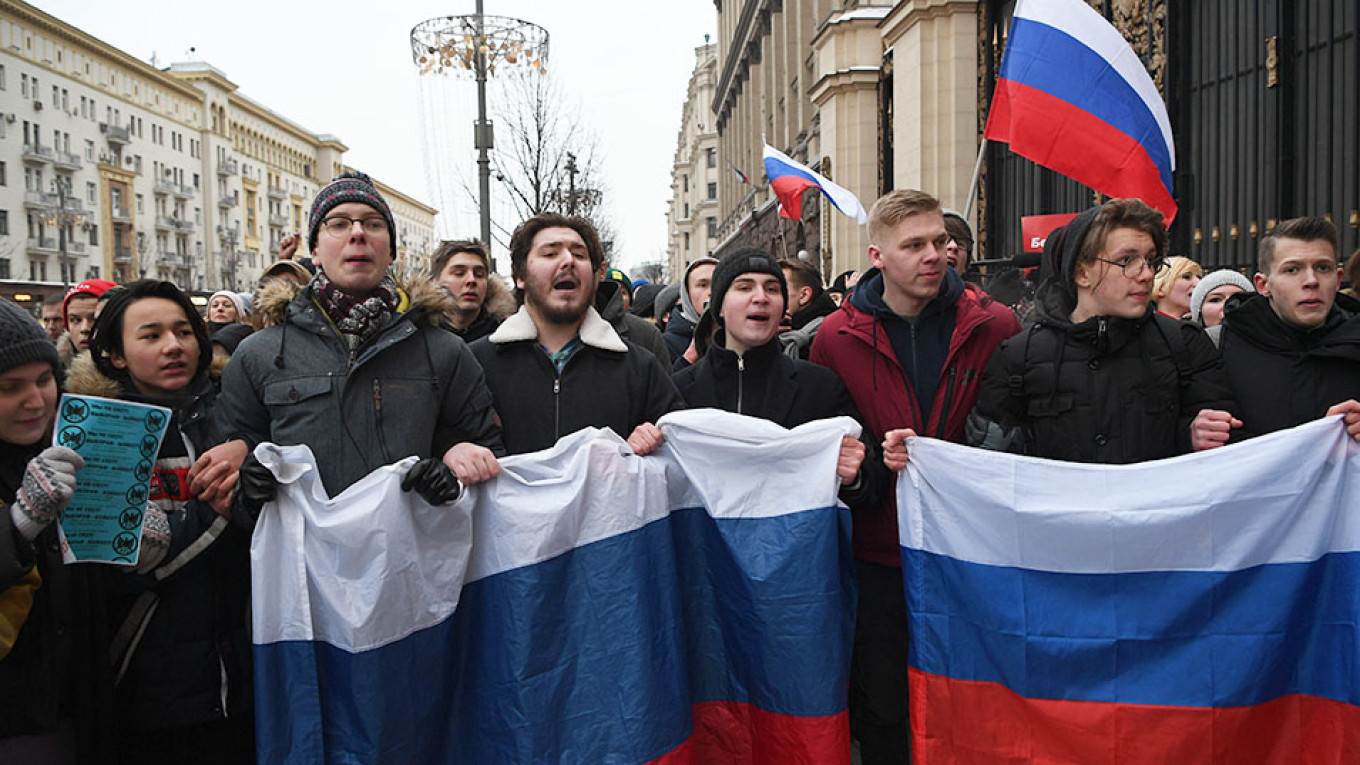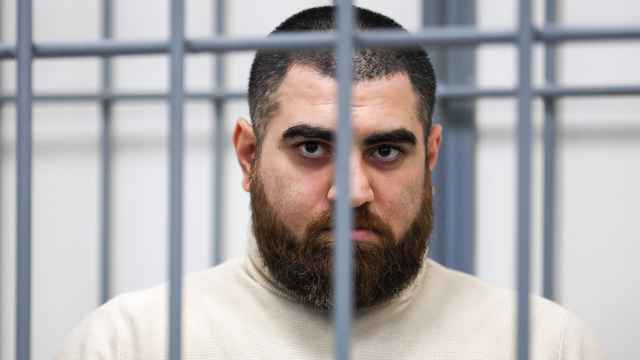The share of Russians who say the country needs sweeping changes has grown to 59% this year, according to new research from the Carnegie Moscow Center and the independent Levada Center pollster cited by the Vedomosti newspaper Wednesday.
“There’s increasing dissatisfaction with the work of the state,” Vedomosti quoted Levada sociologist and co-author Denis Volkov as saying. “New people are needed, but it’s unclear which ones.”
The number of Russians wanting “decisive, large-scale” changes has risen for the second consecutive year, increasing from 57% in 2018 and 42% in 2017.
Some 53% of the respondents said only serious reforms to Russia’s existing political system could bring about the needed changes. Another 34% said the changes are possible within the existing system, according to Carnegie and Levada’s research.
When asked to identify the specific changes they want to see, 24% of the respondents named higher wages and standards of living. They were followed by 13% who wanted a different government and president and 11% who wanted lower drug and utility costs.
Meanwhile, 31% of respondents favored gradual changes in Russia while 8% opposed any changes.
Andrei Kolesnikov, chairman of Carnegie Moscow Center’s domestic politics program, warned that “populist” demands for changes are unrealistic and said the government is trying to address these demands from within the system.
“People expect changes on a silver platter without paying anything for them. They’re not ready for changes in the social sector except for [getting an] additional education,” Vedomosti quoted Kolesnikov as saying.
Respondents were more likely to name state bureaucrats as most resistant to change (69%), followed by oligarchs and big business (67%) and President Vladimir Putin (25%).
The Carnegie Moscow Center and Levada carried out the study in July 2019.
A Message from The Moscow Times:
Dear readers,
We are facing unprecedented challenges. Russia's Prosecutor General's Office has designated The Moscow Times as an "undesirable" organization, criminalizing our work and putting our staff at risk of prosecution. This follows our earlier unjust labeling as a "foreign agent."
These actions are direct attempts to silence independent journalism in Russia. The authorities claim our work "discredits the decisions of the Russian leadership." We see things differently: we strive to provide accurate, unbiased reporting on Russia.
We, the journalists of The Moscow Times, refuse to be silenced. But to continue our work, we need your help.
Your support, no matter how small, makes a world of difference. If you can, please support us monthly starting from just $2. It's quick to set up, and every contribution makes a significant impact.
By supporting The Moscow Times, you're defending open, independent journalism in the face of repression. Thank you for standing with us.
Remind me later.






